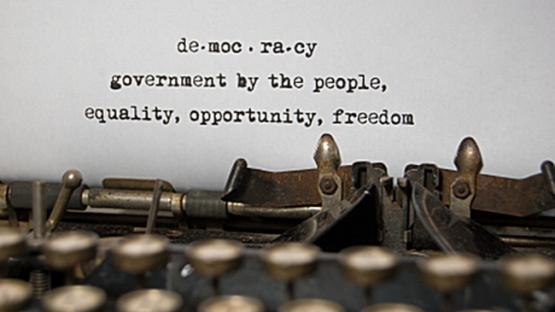On democracy day, its time for intelligence agencies to tell the truth

As we mark the 750th anniversary of the first parliament called in Britain, its time for intelligence agencies to tell the truth.
After the fall of the Berlin wall, the new German government dedicated its commitment to democracy by physically building transparency into the political process - the impressive glass cupola of the Reichstag, the expansive glass walls of the ministry buildings and in the chancellery all encourage public curiosity and engagement, allowing the sunshine to literally pour in. It is a fitting physical embodiment of those central pillars of any democratic society: openness and transparency. To have government of the people, by the people, for the people, it is essential that the people know what is being done in their name, and in their interest.
In the years prior to reunification, Germany had known all too well the dark deeds that take place in dark corners far from public scrutiny. In particular, the people of East Germany had experienced first hand the perils of security agencies operating behind closed doors - the subsequent publication of Stasi files has been a harsh reminder of the corrupting nature of unconstrained and unaccountable power.
Britain has long regarded itself as a bastion of democratic ideology. As the birthplace of the Westminster system and women’s suffrage, and home of rigorous public debate and political engagement, Britain has prided itself as a leader and exporter of democracy. It has held itself out as a worldwide leader in providing access to public data, and has headed up the open government movement designed to make governments around the world more open, accountable and responsive to citizens.
Yet when it comes taking responsible for the failings and overreach of its security services, Britain suffers from an appalling lack of accountability, and an almost complete unwillingness to be open and transparent in any way.
In the face of overwhelming evidence, including documentary evidence that has been publicly verified by the United States government, over the past 18 months the UK government has consistently refused to confirm any of the programmes of mass surveillance that GCHQ are operating.
This stonewall faced when it comes to discussing communications surveillance is not a function of a democratic society. The culture of “Neither confirm nor deny”, of political cheerleaders that present themselves as oversight committees, and of a body politic that appears to have no interest in asking real questions of substance to these intelligence agencies have left the UK in a state of democratic disrepair in the oversight of our intelligence agencies.
This stretches across the UK security services. Repeated questioning of the Metropolitan Police about their use of IMSI Catchers have yielded the familiar refrain of "neither confirm nor deny". Even when presented with a source from within the police confirming this, and the outdated law the technology is operated under, neither confirm nor deny is the response.
Democracy is more than letting Sky News cameras in to film a thinly veiled propaganda segment inside your office. It is about treating concerns expressed through citizens, not as a nuisance but as a genuine appeal for explanation.
Democracy as an idea deserves more than a rubber stamp, a boiler plate response, and an uninterested oversight body. Sadly in Britain when it comes to the actions and policies of our intelligence agencies these are what we are faced with in our democratic system.
750 years is a long time for a democracy to evolve, for the oversight of intelligence agencies in Britain's democratic system it appears to have had no effect at all. 50 years earlier Magna Carta was sealed by King John and established for the first time that everyone, including him, was subject to law. GCHQ and the security services establishment appear to have forgotten that fundamental and unshakeable principle.